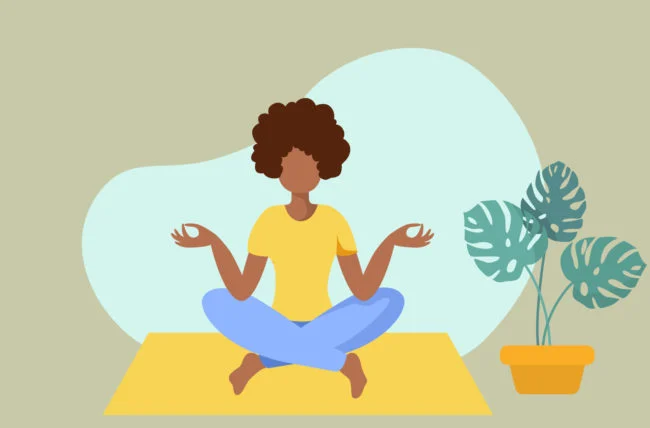10 Effective Strategies for Managing Stress and Anxiety
In today’s fast-paced world, stress and anxiety have become an inevitable part of our lives. Whether it’s work-related pressure, personal relationships, or societal expectations, managing these overwhelming emotions is crucial for our overall well-being. It’s time to take control and find effective strategies to combat stress and anxiety. In this article, we will explore ten practical techniques and strategies for managing stress and anxiety that can help you regain balance, find peace, and manage these emotions effectively.
1. The Power of Deep Breathing: Time to Inhale Calm
When stress and anxiety start to overwhelm you, take a deep breath. Breathing exercises are a powerful tool that can minimize feelings of tension and promote relaxation. Deep breathing activates the body’s relaxation response, lowering blood pressure, reducing heart rate, and bringing your mind back to a state of calmness. Try incorporating deep breathing exercises into your daily routine, and witness the positive impact it can have on your stress levels.
2. Stay Active: Exercise Your Way to Serenity
Exercise is not just beneficial for physical fitness; it also plays a crucial role in managing stress and anxiety. Engaging in regular physical activity boosts the production of endorphins, often referred to as the “feel-good” hormones. These chemicals in our brain act as natural painkillers and mood elevators, helping to reduce stress and increase feelings of happiness. Whether it’s a brisk walk, a yoga session, or a dance class, find an exercise routine that brings you joy and makes it a part of your daily life.
3. Practice Mindfulness: Embrace the Present Moment
In our fast-paced lives, our minds are often consumed by worries about the future or dwelling on past events. Mindfulness is the practice of intentionally bringing our attention to the present moment and accepting it without judgment. By developing mindfulness skills, you can train your mind to focus on what is happening right now, rather than getting caught up in anxious thoughts. Start by dedicating a few minutes each day to practicing mindfulness meditation, and gradually increase the duration as you grow comfortable with the practice.
4. The Magic of Positive Affirmations: Speak Your Way to Calm
Our thoughts have a powerful influence on our emotions. When we constantly engage in negative self-talk, it can contribute to increased stress and anxiety levels. Positive affirmations are simple, yet effective, phrases that help counteract negative thinking patterns and promote self-belief and confidence. Repeat affirmations such as “I am calm and in control” or “I am worthy of peace and happiness” regularly, and notice how they slowly transform your mindset and reduce anxiety.
5. Connect with Loved Ones: Nurture Positive Relationships
When life gets overwhelming, seeking support from loved ones is essential. Sharing your thoughts and feelings with trusted friends or family members can provide a sense of comfort, grounding, and reassurance. Moreover, maintaining healthy relationships helps us feel connected and supported, reducing feelings of isolation and stress. Make time to connect with your loved ones regularly, whether through phone calls, video chats, or in-person meetings and foster those meaningful connections.
6. Prioritize Self-Care: Nurturing Your Mind, Body, and Soul
Self-care is not a luxury; it is a necessity. Take time out of your busy schedule to prioritize your well-being. Engage in activities that bring you joy and relaxation, such as reading a book, taking relaxing baths, practicing hobbies, or indulging in creative outlets. Remember that self-care is not selfish—it is an essential part of maintaining mental and emotional well-being. Treat yourself with kindness, compassion, and love, just as you would treat a dear friend.
7. Harness the Power of Music: Let the Melodies Heal
Music has a profound impact on our emotions and has been used as a therapeutic tool for centuries. Playing calming, soothing tunes can help reduce anxiety and induce relaxation. Create a playlist with your favorite songs that uplift your spirits, bring you peace, and help you unwind. Whenever stress starts creeping in, put on your headphones, and let the melodies carry you to a place of tranquility.

8. Embrace the Beauty of Nature: Nature’s Therapy
When stress feels overwhelming, immerse yourself in the healing power of nature. Spending time outdoors, surrounded by greenery and fresh air, can have a profound impact on our mental health. Nature has a way of calming our minds, reducing stress levels, and fostering a sense of peace and connection. Take a walk in the park, spend time gardening, or plan a weekend getaway in nature to recharge your mind and soul.
9. Limit News Consumption: Detoxify Your Mind
While staying informed about current events is essential, an excessive influx of negative news can contribute to anxiety and stress. Constant exposure to distressing news stories and social media updates can be overwhelming. Set healthy boundaries by limiting your news consumption and being mindful of the sources you trust. Allocate dedicated time for catching up on news, but also make sure to balance it with positive and uplifting activities that support your mental well-being.
10. Seek Professional Help: Reach Out for Support
If your stress and anxiety become unmanageable and start interfering with your daily life, it’s crucial to seek help from a mental health professional. They can provide the guidance, support, and tools necessary to manage your stress effectively. Don’t hesitate to reach out for professional assistance to address any underlying issues contributing to your anxiety. Remember, seeking help is a sign of strength, and it can set you on a path toward healing and recovery.

FAQs
FAQ 1: Can stress and anxiety be completely eliminated?
No, stress and anxiety are natural responses to certain situations. However, through effective management, individuals can significantly reduce stress and anxiety levels, leading to a better quality of life.
FAQ 2: How long does it take to see improvements by implementing these strategies?
The time it takes to see improvements varies from person to person. With consistency and dedication, individuals can experience positive changes in their mental well-being within a few weeks to months.
FAQ 3: Are these strategies applicable to everyone?
Yes, these strategies are applicable to individuals of all ages and backgrounds. However, it’s important to remember that everyone’s experiences and needs may differ, so it’s essential to tailor these strategies to suit individual preferences.
FAQ 4: Can medication be helpful in managing stress and anxiety?
In some cases, medication can be beneficial in managing stress and anxiety. It is advisable to consult a healthcare professional to determine the most appropriate course of treatment based on individual circumstances.
FAQ 5: What are some additional resources for further support?
For further support and information on managing stress and anxiety, individuals can reach out to mental health professionals, join support groups, read books on the subject, or explore online resources provided by reputable organizations such as the Anxiety and Depression Association of America (ADAA).
Conclusion: Strategies for Managing Stress
Managing stress and anxiety may seem like an uphill battle, but with the right strategies and mindset, finding inner peace becomes possible. Incorporate deep breathing exercises, exercise regularly, practice mindfulness, and embrace the power of positive affirmations. Connect with your loved ones, prioritize self-care, and enjoy the therapeutic effects of music and nature. Remember to limit news consumption and seek professional help when needed. By implementing these ten effective strategies for managing stress and anxiety, you can regain control over your emotional well-being and find peace in even the most turbulent times.
Also Read:
The Ultimate Guide to Glowing Skin: Tips and Tricks



